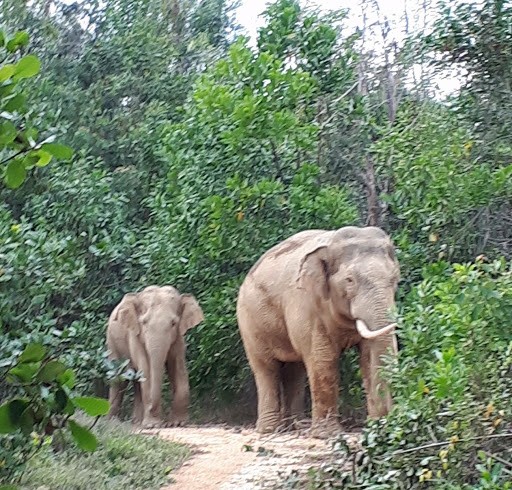(VOVWORLD) - Vietnam used to have big herds of elephants, but over the past 4 decades the elephant population has declined 90%. Steps are now being taken to protect Vietnam’s elephants.
 Elephants in Dong Nai province (photo: baodongnai.com.vn) Elephants in Dong Nai province (photo: baodongnai.com.vn) |
Elephants live in 8 provinces: Son La, Nghe An, Ha Tinh, Quang Nam, Dak Lak, Dak Nong, Dong Nai and Binh Phuoc. Dak Lak is Vietnam’s elephant hub with about 100 elephants living in the wild and 44 elephants living in captivity. They are all Asian elephants, listed as ‘endangered’ on the IUCN Red List, as ‘critically endangered’ in the Red Book of Vietnam, and listed in Appendix 1 of the Convention on International Trade in Endangered Species of Wild Fauna and Flora.
To save wild elephants it’s vital to protect their habitats. Primeval forests, the natural home of elephants, are shrinking in area and degrading in quality. Losses of natural habitat and food have led to violent clashes between elephants and humans.
Vietnam has implemented a number of action programs to protect elephants, including an Action program for urgent protection of elephants until 2020, a Master plan for elephant protection from 2013 to 2020, and a Project to protect Vietnam’s biggest herd of wild elephants.
Huynh Trung Luan, Director of Dak Lak province’s Center for Elephant Protection, said: “We have organized 9 teams to alert people of the appearance of elephants. We have asked Dak Lak’s provincial People’s Committee to reserve sufficient forests for wild elephants. We have also organized elephant-friendly tourism projects designed to discourage elephant riding and using elephants in festivals.”
Along with improving the natural environment for elephants, Vietnam has strengthened regulations that protect elephants. Buying, selling, transporting, keeping, processing, and advertising elephant-related products, particularly elephant ivory, are all illegal activities.
On July 23, the Prime Minister issued a directive on urgent measures to protect wild animals that outlaws trading or consuming wild animals, including elephants.